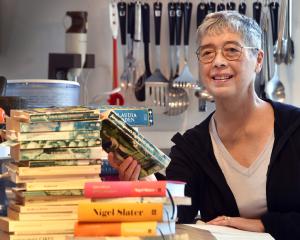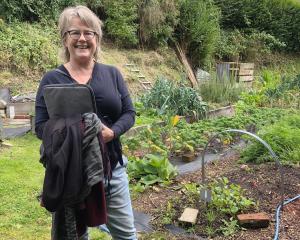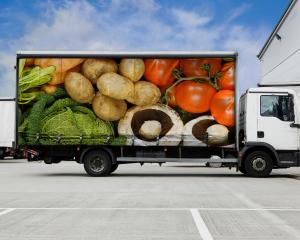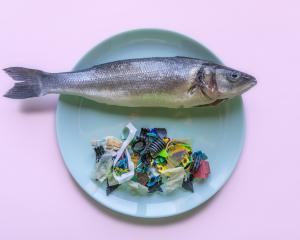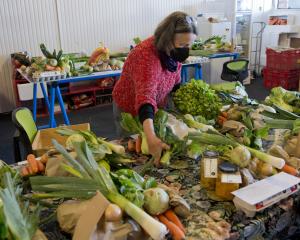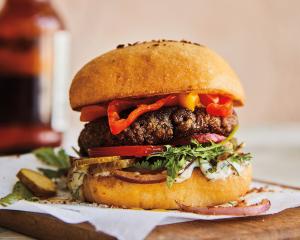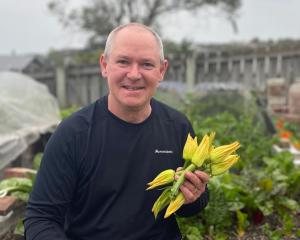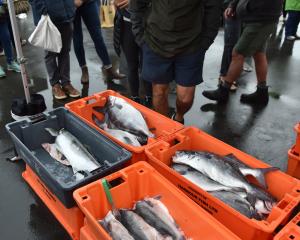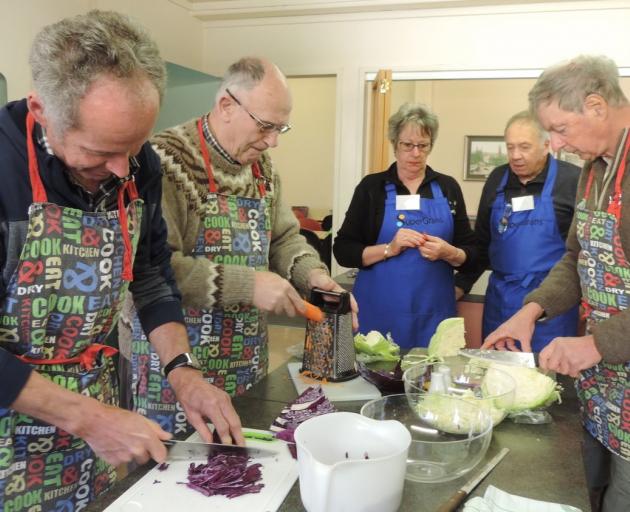
In the kitchen at Age Concern in Dunedin, several people are busy grating cheese and mixing it with eggs and corn to make little bread-based quiches for lunch.
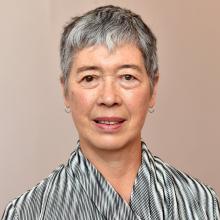
Then they chop cabbage and capsicum, grate carrot and mix it all together to make a coleslaw. Afterwards they all sit down to share the meal.
This is a Senior Chef cooking class and, perhaps unsurprisingly, there are more men than women attending. Several of the men claim their forte is doing dishes and cleaning up rather than preparing food, but they would like to learn how to cook.
Some, like Nick and Darryl, have been sent by their wives so they can share the cooking, now they have retired. Murray would like to pull his weight more in the kitchen, but finds it tricky to get the timing right so everything is ready together. Others, like Annette and Lance, live alone, find it boring cooking for one and are looking for new ideas, inspiration and skills.
Pip Weber leads the class, assisted by Maureen McKay and Craig McLanachan, all of them Supergrans, members of a charitable organisation which aims to teach young people life skills such as cooking, gardening or running a household.
Pip says her only qualification is life and explains the recipes are simple but you can adapt them once you are familiar with them. When she is cooking, she often changes an ingredient or adds things, depending on what she has in the fridge. However, she jokes, Maureen insists she must follow the recipes strictly in this class.
She leads the group easily and there are jokes and laughter.
We start with a discussion about nutrition and food safety, then we begin cooking. And we get to eat the results for lunch and even take some home. There are eight classes, including muesli and omelettes for breakfast, and sessions on meal planning, budgeting, shopping, quick and healthy food, and dessert.
There's no charge for these classes, run and funded by Age Concern Otago. Like most of the rest of Age Concern's support services and programmes, they are funded independently by grants they have to apply for, according to health promotion educator Kristen Beardsmore.
The classes for people over 65 who are cooking for one or two people are intended to give a bit of inspiration about cooking simple food that's healthy and nutritious, she says.
''As we age we have physical changes so our taste and our smell and our enjoyment of food can change because of those different tastes and smells, and sight. It affects the enjoyment of food.''
People with poor eyesight can end up with outdated or old food because they cannot read the use-by dates, she says.
Many older people go through psychological as well physical changes. They may have lost a partner, be living alone, or may have mental health issues around depression, grief, loss, or social isolation, especially if they are not physically mobile.
''When you are living on your own and cooking for yourself only, you can lose the enjoyment. Who have you got to cook for? That has an impact on dietary intake and enjoyment of food, or it can be a chore to cook or you get in a rut and it just becomes too hard. That impacts on your nutritional needs,'' she said.
''It's too easy to have a slice of toast and Marmite and a cup of packet soup, or some people eat half their meals-on-wheels for lunch and the other half for tea, so they are not consuming enough and their body is not getting the nutrients it needs.''
She says the New Zealand nutritional guidelines are a good guide.
Pamphlets are available from health providers or at healthed.govt.nz, but basically they say to eat at least five servings of vegetables and fruit a day, six servings of breads, grains or cereal, especially wholegrain, three servings of milk or milk products and one serving of meat, fish or eggs or two of legumes, nuts or seeds. Choose foods low in fats and sugars, and drink plenty of fluids.
Physical activity goes hand-in-hand with good nutrition, and both are important for preventing falls that affect many older people, she said.
''They don't realise that muscle and weight loss is due to poor nutrition, which then puts them at risk of falling and being unwell,'' Kristen said.
You don't think about your age until someone asks you and you have to work it out, because inside you don't feel that much older. It's just that physical abilities decline which is why it's so important to keep active and healthy, she says.
She suggests inviting a friend for a meal so you can cook for two and take turns. Or go out for lunch, although that involves expense. However, there are some senior discounts. Social eating is a healthy way of eating, she says.
''Our body absorbs and processes food better and we eat more, believe it or not. If it's healthy food, that's a good thing.''

